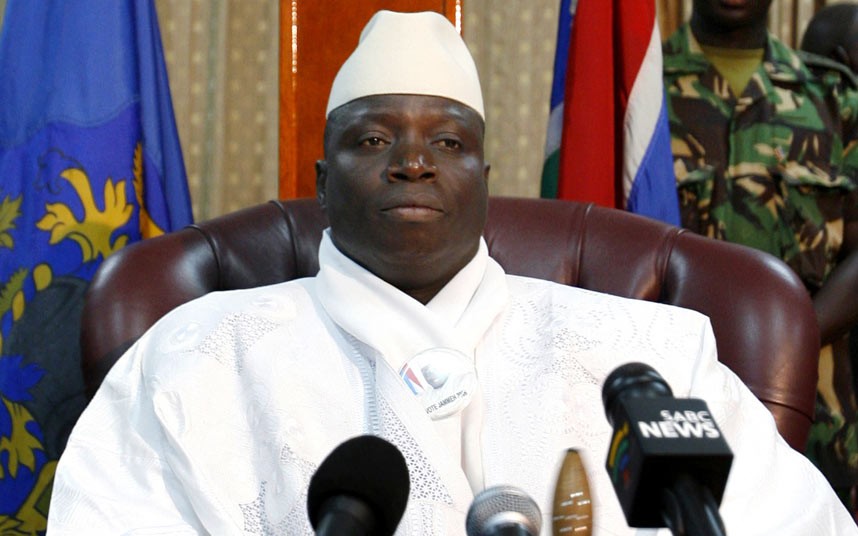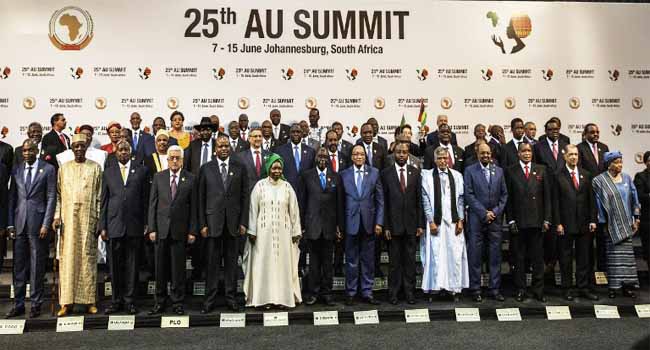Six weeks ago, The Gambia’s president, Yahya Jammeh, seemed determined to emulate Zimbabwe’s, Robert Mugabe. Specifically, he refused to cede power after voters ousted him in a free and fair election on December 1, 2016.
Alas, Jammeh is just the latest African despot attempting to hold on to power. …
It eventually took military force to remove Gbagbo [of Côte d’Ivoire recently]. I fear it will take the same to remove Jammeh. … They never learn.
(“The Gambia’s Jammeh Using Military Force after Losing Democratic Election,” The iPINIONS Journal, December 14, 2016)
 Sure enough, it took military force.
Sure enough, it took military force.
[On Saturday night, January 21,] longtime leader Yahya Jammeh climbed aboard a small plane in the capital city, Banjul, waved a final goodbye to his loyal supporters, and headed into exile in Equatorial Guinea. …
As pressure mounted on Jammeh to cede power, the Economic Community of West African States (ECOWAS) threatened to send in a military force to oust Jammeh and install Barrow. A last-ditch diplomatic effort, however, averted bloodshed, with officials able to coax Jammeh into an early retirement abroad.
(Washington Post, January 30, 2017)
I never envisioned Jammeh enjoying a long and happy retirement, however. Not least because, as I noted in my original commentary, The Gambia’s new government seems intent on following the precedent Liberia’s new government set when it prevailed upon Nigeria to give up its exiled president.
Nigeria’s president said Liberia’s new government, which had formally sought Mr Taylor’s extradition, was free to take him into custody.
Mr Taylor faces war crimes charges over his role in the civil war in neighbouring Sierra Leone.
He went into exile in Nigeria in 2003 as part of a deal to end 14 years of civil war in Liberia.
(BBC, March 25, 2006)
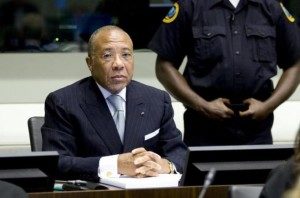 I duly commented on his fate in “Former Liberian President Charles Taylor Convicted in The Hague,” April 27, 2012.
I duly commented on his fate in “Former Liberian President Charles Taylor Convicted in The Hague,” April 27, 2012.
I’m sure Jammeh thinks he struck an ironclad deal to live in blissful retirement. But, given what happened to Taylor, you’d be forgiven for thinking it’s only a matter of time before Equatorial Guinea gives him up too. In fact, The Gambia is already laying the predicate for extradition proceedings:
The Gambia’s new president has disavowed an immunity deal for his predecessor after accusing him of fleeing into exile with a plane-load of luxury cars and cash stolen from the central bank.
(London Telegraph, January 23, 2017)
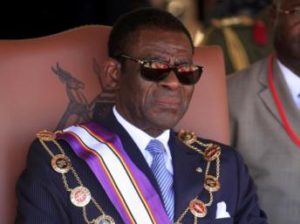 Except that Jammeh should be able to sleep easier than Taylor ever dreamed of. After all, President Teodoro Obiang of Equatorial Guinea lords over a brutal kleptocracy. He stands accused of perpetrating crimes that make Jammeh’s alleged corrupt practices and human rights abuses seem petty by comparison.
Except that Jammeh should be able to sleep easier than Taylor ever dreamed of. After all, President Teodoro Obiang of Equatorial Guinea lords over a brutal kleptocracy. He stands accused of perpetrating crimes that make Jammeh’s alleged corrupt practices and human rights abuses seem petty by comparison.
What’s more, unlike nearly every other African leader, Obiang shielded himself and his cohorts from international prosecution. Specifically, he refused to submit his country to the jurisdiction of International Criminal Court (ICC). No doubt this is why Jammeh rejected Nigeria’s offer of asylum in favor of Equatorial Guinea’s.
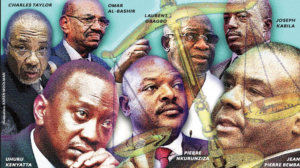 On the other hand, African states now have a vested interest in seeing Jammeh (and other despots) held to account. Not least because they sent shockwaves through the international community late last year when they denounced the ICC as a Western tribunal that is biased against African heads of state. South Africa even led some states in withdrawing their membership. Now comes this late-breaking development:
On the other hand, African states now have a vested interest in seeing Jammeh (and other despots) held to account. Not least because they sent shockwaves through the international community late last year when they denounced the ICC as a Western tribunal that is biased against African heads of state. South Africa even led some states in withdrawing their membership. Now comes this late-breaking development:
African leaders backed a plan for a collective withdrawal from the International Criminal Court (ICC) at a continental conference on Tuesday.
Attendees of the African Union’s annual summit in the Ethiopian capital Addis Ababa took the non-binding decision at a private meeting.
(Newsweek, February 1, 2017)
As it happens, I provided the political and intellectual cover African states needed to do this in a number of commentaries, including “No (Equitable) Justice in ICC Prosecuting Kenya’s Kenyatta,” March 25, 2013, “International Criminal Court Has Lost All Credibility,” June 5, 2013, and “Neocolonial International Criminal Court Is Imperious and Incompetent. Abolish It!” April 11, 2016.
But, having discredited the ICC, African states must now rise to the challenge of showing the world that they can hold regional leaders to account for human rights abuses and war crimes, including genocide. Doing so would give unassailable credence to the African Union’s motto of African solutions to African problems.
Unfortunately, I have reason to fear they will not rise to that challenge. Nothing informs my fear quite like this:
African leaders are beaming with foolish pride today over the way they conspired to help Sudanese President Omar al-Bashir abscond from justice. They perpetrated this conspiracy during an African Union summit in South Africa last weekend. …
I am dismayed because, as yesterday’s edition of the UK Guardian recounts, this is the same Bashir who presided over the killing of 300,000 black Africans and displacement of two million.
Given this, instead of aiding and abetting him, you’d think black African leaders would want to tar and feather Bashir. Except that far too many of them have more in common with him than their own people.
(“Abetting Sudan’s Bashir Betrays All That’s Wrong with African Leaders,” The iPINIONS Journal, June 17, 2015)
So, Jammeh seems well-situated for a long and happy retirement. But, fearing Interpol, he would be well-advised to resist his Westernized wife’s inducements to accompany her on the American and European shopping sprees to which she has become so accustomed.
Related commentaries:
Jammeh…
Taylor in Hague…
ICC Kenyatta…
ICC Gaddafi…
ICC Bashir…
African leaders defy ICC?…
Neocolonial ICC…
Abetting Sudan’s Bashir…
